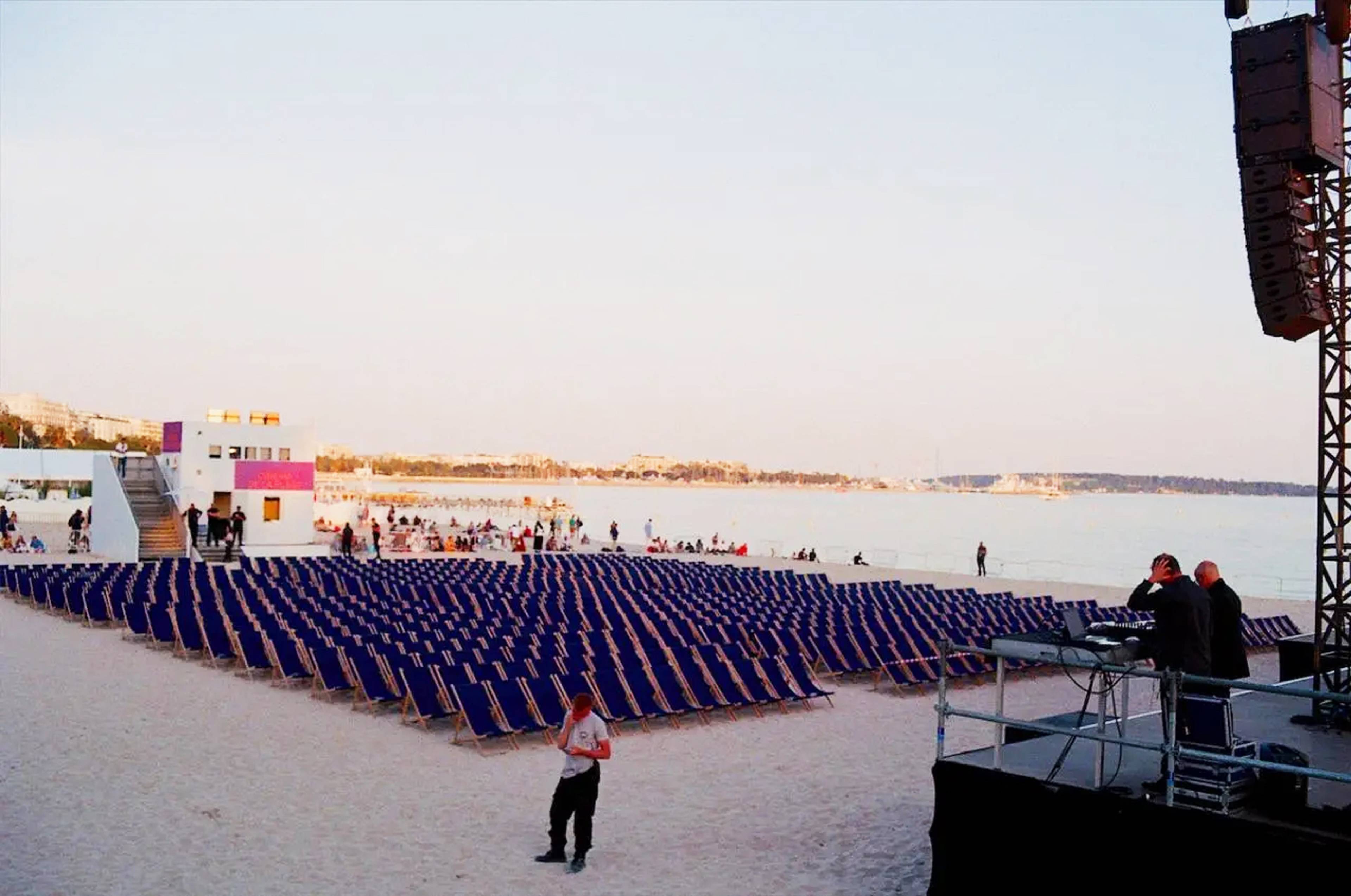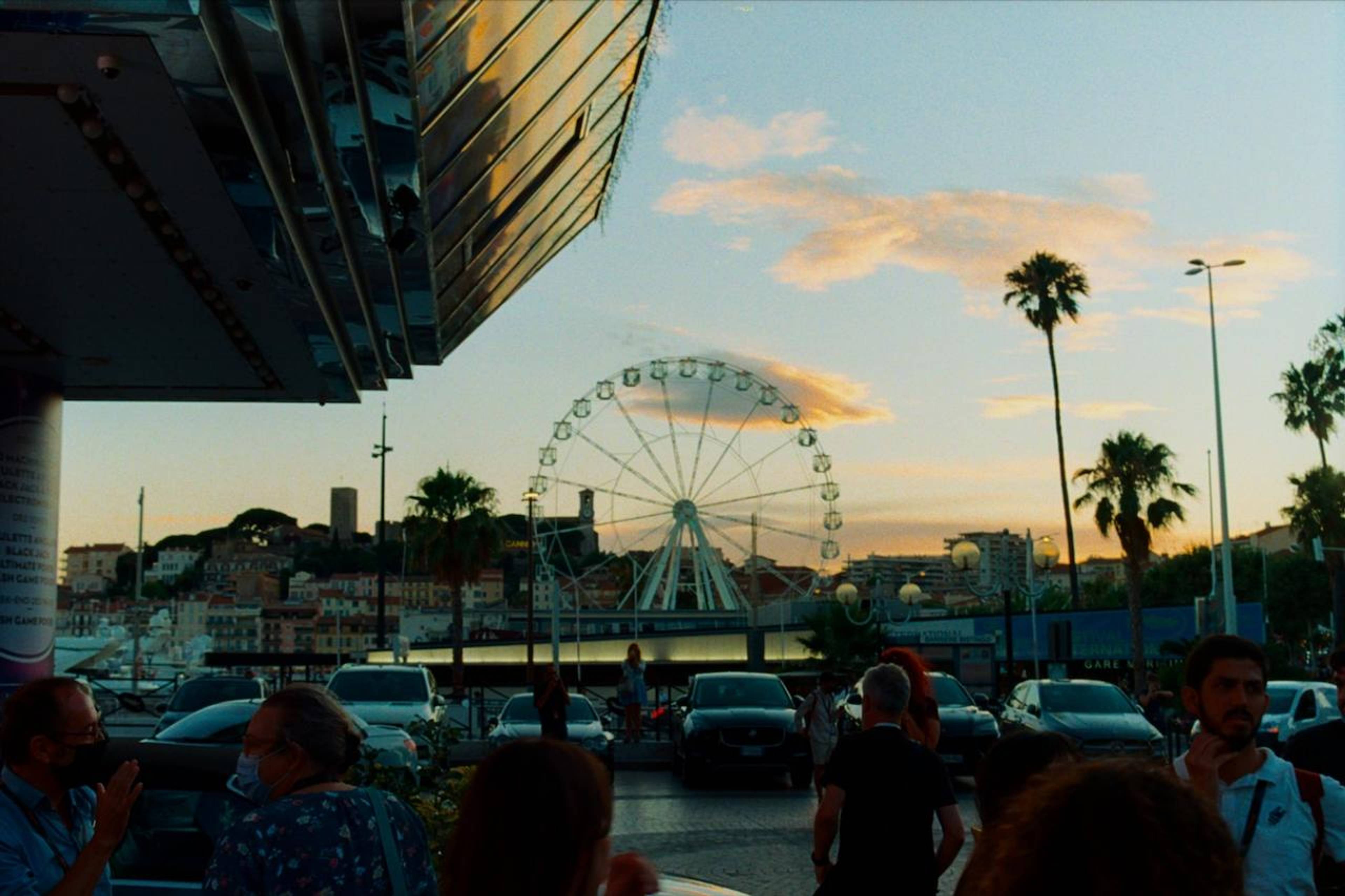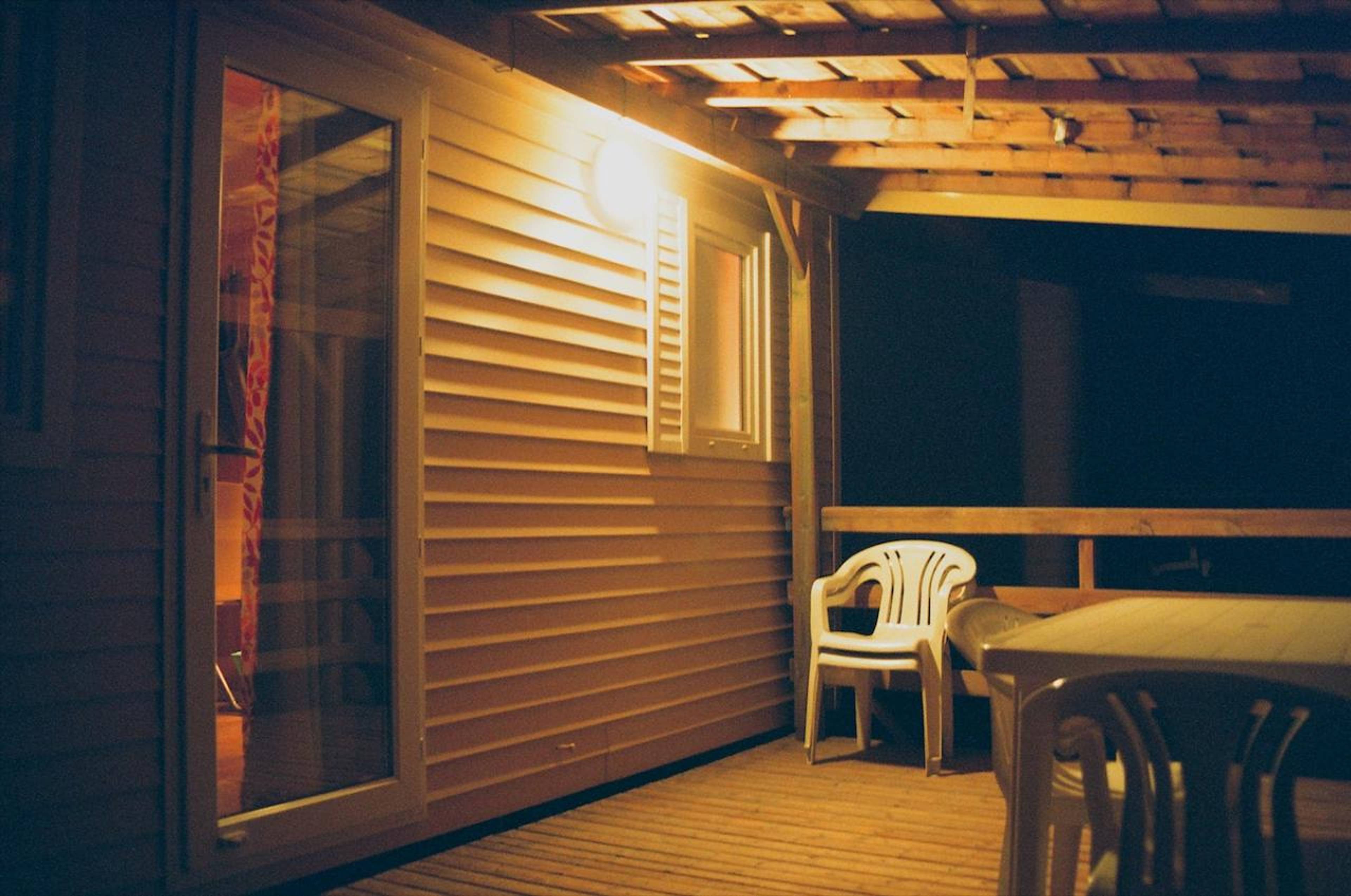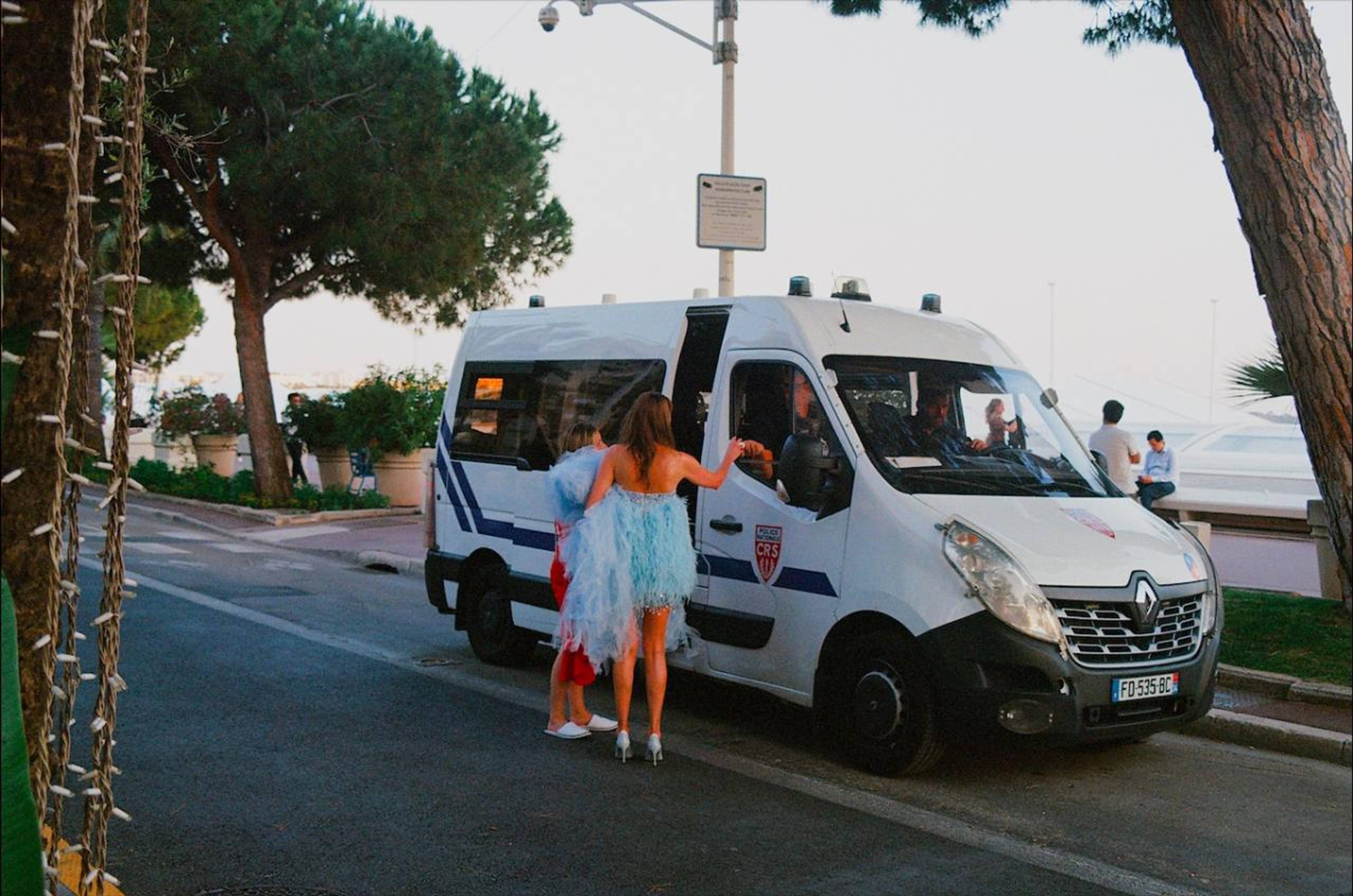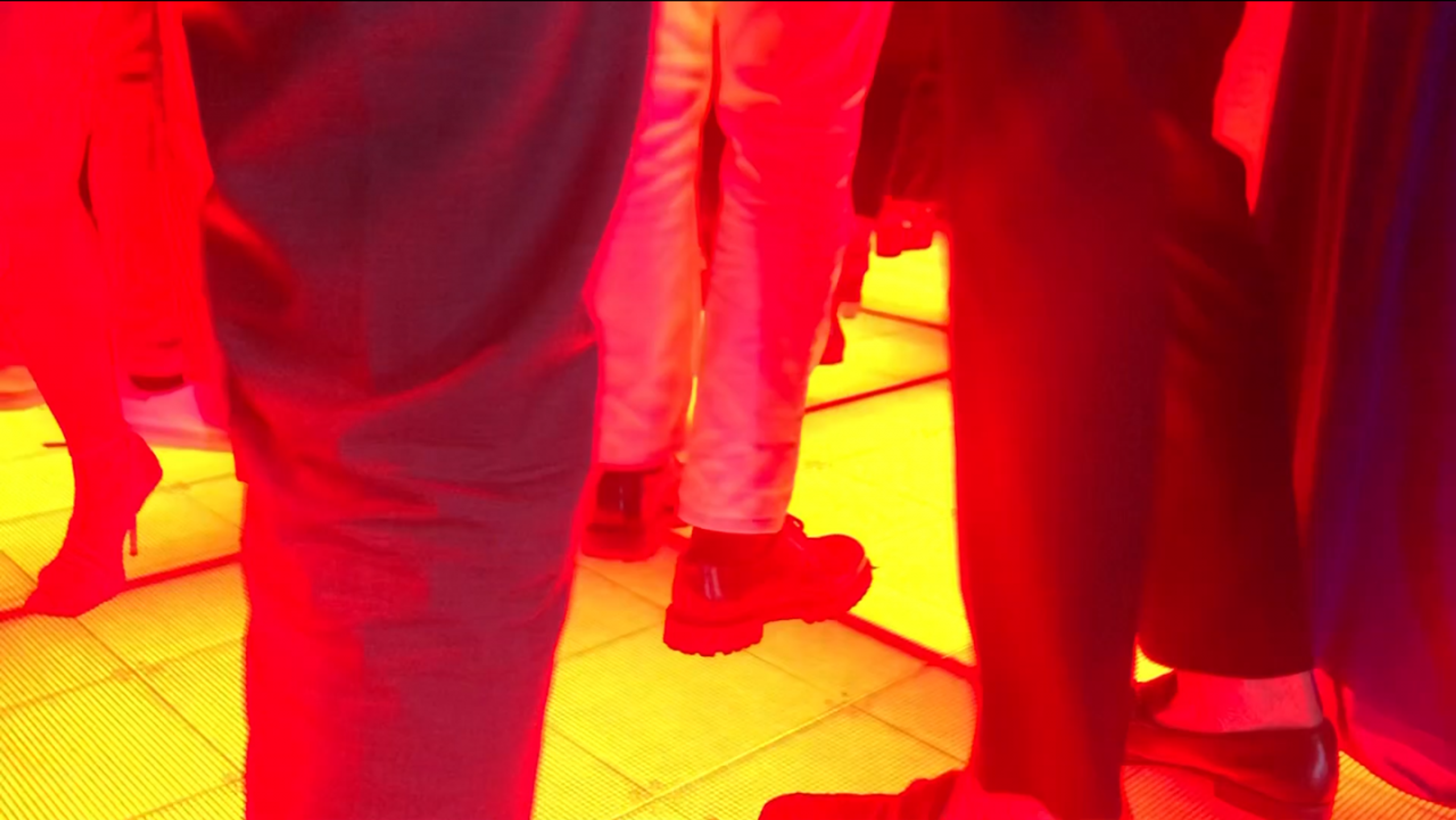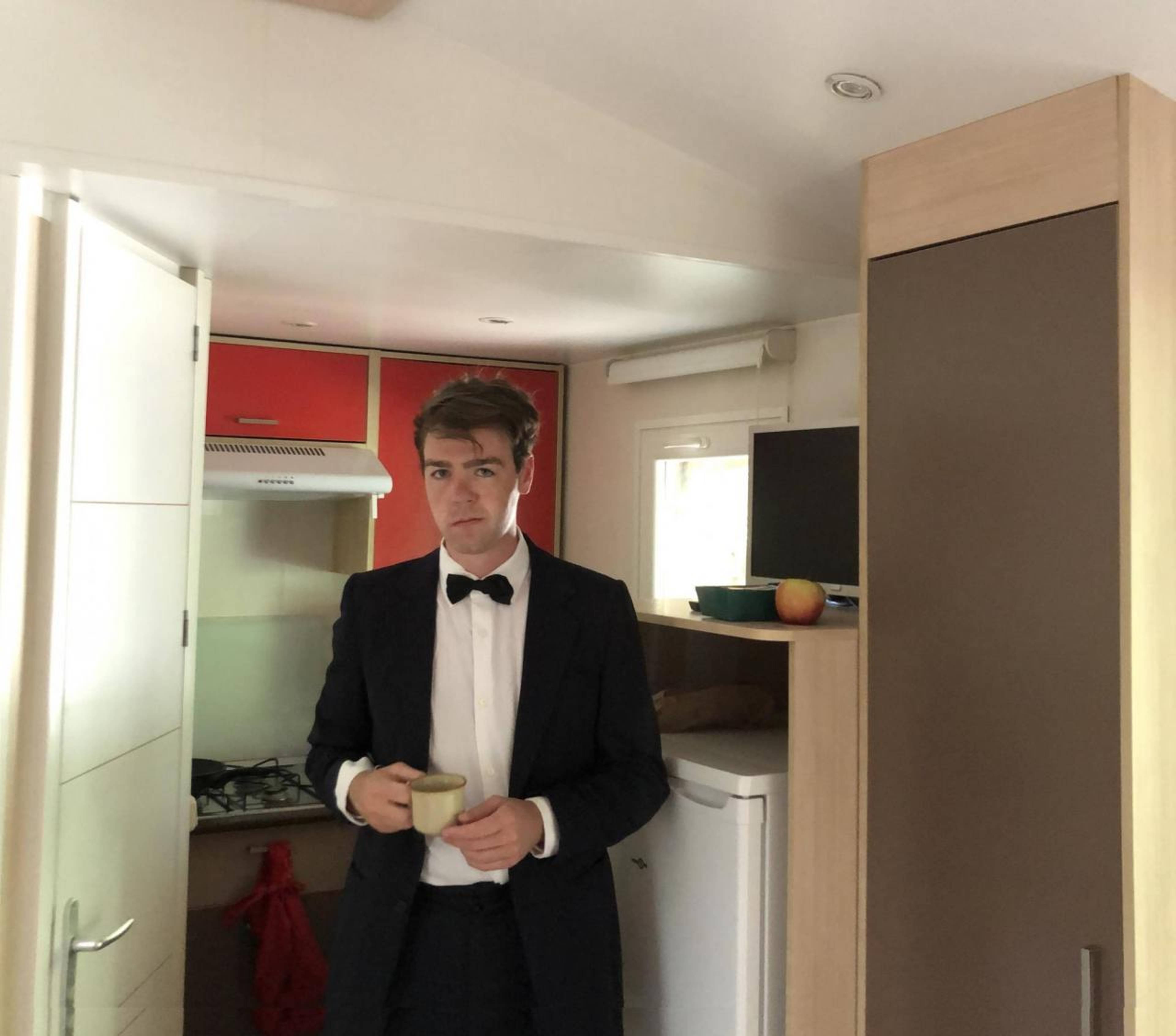I’m in line for the Variety party at the Radisson and I’m nervous, because no one wants to see my credentials. The lobby is packed, and not with anyone who seems to belong here more than I do. A man by elevator taps me on the shoulder, and for a second I feel the relief of an inspection. But all he wants to know is if they’ll be checking a list once we make it to the roof. I shrug. My real answer is: If you have to ask, you aren’t on it. I’m definitely not on it, but that’s the confidence game. My friend Chantal, who is even better at this game than I am, employs a simple, nearly foolproof method. When a list is presented at the threshold to an event, she presses her breasts together and says “Gee, my friend John told me to meet him inside! I’m afraid that I don’t remember his last name.” They start scanning their list for Johns (or Jeans) who have already checked in. They find several. She waits until the third or fourth option is read, then says, “That’s him!” and voila . Doors open. My preferred method is to namedrop Scott Macaulay, the Filmmaker editor who never answers my emails. I tend to get pretty far pretending I know or am him. If he’s already at an event that I’m crashing, they’ll usually tell me I can enter as his plus-one, which has the added benefit of alerting me to someone I should avoid once I’m inside.
A creamsicle sunset over the Palais de Festivals
On the roof of the Radisson, more waiting. A crush of people crowds in on the bar, where the poor bewildered staff find themselves tasked with making Variety -themed cocktails in addition to the usual champagne. This soiree ran out of clean flutes hours ago. They’re popping a new bottle every fifteen seconds, and the spent corks are piling up at their feet. Servers leaving the kitchen with platters of amuse-bouche are pecked clean before they’re halfway out to the patio. On the patio: people smoking furiously against the backdrop of a creamsicle sunset. Nobody seems to possess a full glass, and small talk is just so much harder without one. I think about Woody Allen’s line from Annie Hall — which he attributes first to Groucho Marx and later to Freud — about how he wouldn’t want to be a part of any group that would have him as a member. Woody’s talking about love, and we have to assume that Groucho meant politics, but the exact same logic applies to all of these overrun parties at Cannes. If I made it this far, they must be letting anyone in.
I’ve stopped looking at such unglamorous necessities as a sign that I’m not supposed to be here, and now take them instead as a sign that I actually really am.
Attending the festival for the fourth time this year, I’ve become obsessed with its little games of exclusivity. I find my own fealty to them both thrilling and perverse. The first time I came here, as a “senior producer” for a company both penniless and microscopically small, I realized the only place I could afford to stay in was a mobile home, situated at a campsite about a forty-minute bus ride from the main festival grounds. I was horrifically embarrassed at the thought of my poverty standing out at what is commonly considered one of the most glamorous events on the planet. I soon realized hardly anyone can actually afford this kind of lifestyle, and it’s only about how far people go towards pretending. Being good at pretending can open many doors not previously available to you. Now an odd veteran of what was supposed to be a once-in-a-lifetime experience, I routinely book out the same little mobile home, which, amazingly, never has competing claims on its availability. I pay by the week what an Airbnb costs for a night. I’ve stopped looking at such unglamorous necessities as a sign that I’m not supposed to be here, and now take them instead as a sign that I actually really am.
The author’s prefab mobile home, cozily arrayed on its campsite
One day, I’m invited aboard a yacht for brunchtime island-hopping. Chantal, again; apparently she sleeps on this vessel, though with whom she refuses to say. The boat isn’t huge — only about 40 feet long — but it’s chartered by a baby-faced billionaire who doesn’t speak French and captained by a smoking-hot Frenchman who doesn’t speak English, with the rest of us lazily translating orders as we slice watermelon and ice champagne at the back cabin table. Unlike my mobile home, it comes equipped with a washer/dryer, dishwasher, and temperature-adjusted wine cooler. The water pressure in the below-decks shower’s not great, but I’m impressed enough by the fact that a person can shower here at all. Isn’t there a limited supply of fresh water?
After we embark, brunch is served: Little filets of smoked salmon folded atop whole-wheat bread. Organic goat cheese, substituting for cream cheese. Foie gras. Reaching over one another for luxury provisions, we come to the realization that this is a confined space, salty sea-breeze and all, and begin the charged task of getting to know one another. Our host has invited a smattering of people, with an indiscriminate generosity that hints at deep loneliness. I tried catching his name over the thrum of the motor; I think it was John.
Chatting to Stefan, the man sitting to my left, we discover that we not only live in the same neighborhood of Brooklyn, but across the street from one another on the very same block. This small-world-art-world bullshit would probably be met with boredom at Basel, and seething animosity at a literary conference. On the Mediterranean, though, we greet the news like long-lost brothers. Cinema is, after all, the most collaborative art form — not to mention the most cost-intensive — and how lucky one feels to find oneself surrounded by friends. Not to mention that the two of us now know roughly what the other pays in rent, making us something like co-infiltrators on the Trojan horse of this yacht. “You’ve probably seen me dancing naked in front of my windows!” Stefan exclaims with pure glee.
Why pay for upkeep and docking on a seafaring vessel year-round, if you’re only going to show it off for two weeks?
Stefan’s just finished reading his fifth Karl Lagerfeld biography. He’s a film director (an actual one; I find him later on IMDb), who is now seriously considering making a biopic of the designer/personality’s life. Of course, the movie would only be good if it was unauthorized; open enough to allow for many creative interpretations, yet hewing closely enough for the estate to threaten to sue at some point. Like any of Pablo Larraín’s recent movies, except that every self-respecting director thinks they could do Larraín’s projects better than him.
“Karl thought it was uncouth to own anything besides property,” Stefan tells us. “That’s why he never launched a label in his own name — the Lagerfeld line was always run by other people. His mission to was to be totally free from commitment: to have enough money to buy whatever he wanted and then throw it away the moment he was done with it.” His words are carefully considered by those of us who appear very rich. There is much sober nodding, intelligent chin-rubbing. Someone points out that Lagerfeld, of course, saw the Airbnb future with his decadent philosophy. Now, we all make micro-lease contracts, whether you’re crashing in a camper or a renting out a yacht. I’m surprised, at first, to hear this general consensus actually affirmed by the billionaires. Isn’t the whole point of being incomprehensibly wealthy so that you can buy many things you don’t actually need? But then I realize that most of what I know about rich people I’ve learned from rap songs — which tend to reflect the mentality, rather, of the aspirationally rich, inflected with no small shading of insecurity about what it might look like to not yet have enough. While Jay-Z and J. Cole spout tightly-wound verses on the virile failings of people who lease, it’s clear that the pale, male, and Yale breed of plutocrat I see before me now has no such insecurities about not doing it right. After all, why pay for upkeep and docking on a seafaring vessel year-round, if you’re only going to show it off for two weeks?
Seasonal visitors, assisted by local guardians of peace on the Boulevard de la Croisette
A couple nights later, my contingent of festival friends seems tapped out. It’s fun being in a Whatsapp group-chat with thirtysomethings, all texting for party details like freshman at orientation, until the moment arrives when no one actually has a line on an event. In desperation, someone suggests a last stand at the Campari Plage — an elaborate, bedecked private beachfront sponsored by the bright-red digestif. Convening there, we find a crowd of people swarming an impenetrable façade. Bright, clubby music bounces out from behind a mountain-like man, who explains that absolutely no one is getting in. The bouncer is Italian, which means he’s not even susceptible to Chantal maneuvering favors in rapid Franglish — typically, our failsafe for every point of entry. Our wave of revelry seems to crash on the rock of this man. Like addicts searching for a fix, we weasel our way down onto the neighboring beach, which is occupied by a restaurant that’s closing for the night. The host suggests we can stay for one last drink at the bar, where we can at least look upon the Campari-colored walpurgisnacht of hedonism next door.
The confidence game is all one big charade, but play long enough and you’ll carve out some small sense of dignity in your role.
As though in a trance, I begin walking past the sad cabana and folded deck-chairs, until I reach the edge of barricade where the bass is thudding loudest. A line of potted trees, placed against the fence on the far Campari side, aims to screen us from its sponsored Elysium. There is a split-second of hesitation where I wonder what a soberer person might do, before I just say Fuck it and vault over the fence between a gap in the trees. I land on my ass on the other side, emerging from the pseudo-forest unnoticed by an assortment of glamorous people who are smoking and making out beneath satin umbrellas. In front of me now is the Campari pavilion, a glittering red dancefloor with a canopy roof and columns that appear to be made entirely from oversized bottles. The guard who is walking this side of the perimeter happened to be looking towards the moonlit sea when I crossed. I sit down at one of the nearby tables, suddenly indistinguishable from the rest of the insiders, and text the group that, if they want to try one-by-one, I can instruct them on how to hop the fence so that security doesn’t notice right away.
But no one on the other side seems willing to risk it. Demeaning oneself to the bouncer is one thing, but they’re all a little appalled by my flagrant gate-crashing. I feel a twinge of pity for my peers on the chat. Theirs is a sense of status that they think is actually worth protecting, enough to respect the requisite limits. Sure, the confidence game is all one big charade, but play long enough and you’ll carve out some small sense of dignity in your role. Some of these people actually work their identities year-round. Meanwhile, there are twigs sticking out of my tuxedo, and sand in my pants from where I landed on the beach. But I have made it past them all to a seemingly impossible place. Brushing myself off, I begin walking towards the point where white sand meets red carpet.
The glowing dance floor of the Campari Plage
I wish I could tell you that this party wasn’t all it was cracked up to be, because it would be dignified to learn that recklessness breeds disappointment, that managing expectation provides the surest path to satisfaction, that there are things we can’t do and places we can’t go — and those places aren’t all that cool anyway. But to tell the truth, it was the most fun I’ve had all year, and for reasons that have everything to do with unrepentant exclusivity. White-coated waiters appeared from every corner of the plage, offering spritzes and negronis without needing to be asked. Every kind of person, at every stage of age, was getting down on the dancefloor with a sense of liberty that would be embarrassing if it hadn’t been so shared — and if their gyrations were not directly inspired by the knowledge that dozens of their peers had been turned away at the gate, this surely seemed to help on almost atmospheric level. Yes, the music was cheesy, yes the light-up dancefloor didn’t always light up in perfect sync to the song, but the energy — the sense, above all, of a rarefied air — was irreducible and exceptional. The DJ, for once, was actually decent, and seemed elated by the unrealistic responses he produced. For a long time, no one spoke to me and the music never stopped; we just danced, and time unwound into memory. It was a little like heaven — which, as every good Catholic knows, is proportionally paradisiacal to all those denied its entry.
The author prepares for yet another long night
___
7pm is a new vertical where Spike insiders spread gossip – who’s up, who’s down, which party got out of hand – and stalk their city’s scene.


